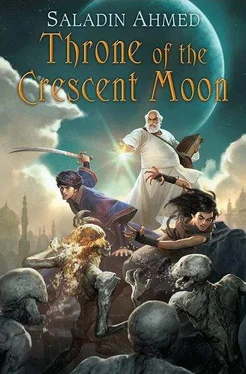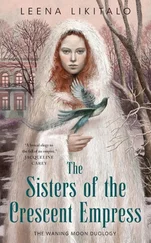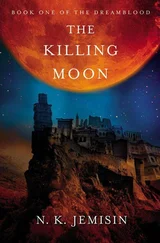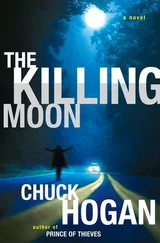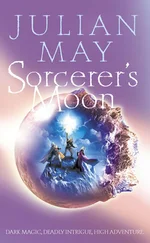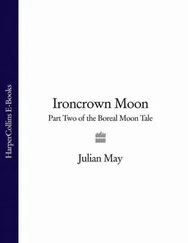Fifty different feelings filled her. She kept her eyes on the ground and said, “We should be going.”
Seeming to speak to no one in particular, the dervish said quietly, “I am a young man, but as there is an elder amongst our number, one of us at least ought to act in a proper manner.” Zamia looked up and saw a tiny smile on the dervish’s pretty, birdlike face. Then he walked away, heading for the mules.
Clearly such retorts were rare, for the old man just stood there for a moment blinking in shocked silence, watching the dervish walk away. The ghul hunter turned to Zamia and let out a laugh that shook his broad shoulders and big gut. “Ha! ‘One of us ought to!’ Hee hee! ‘Dignified and proper!’ ” He shouted at Raseed’s back, “Indeed, boy, indeed! And since it clearly isn’t going to be me, it might as well be you!” The Doctor waggled his bushy grey eyebrows and gave Zamia a conspiratorial wink. “He hates it that I call him ‘boy,’ you know.”
“And I hate your calling me ‘girl,’ ” Doctor.
The old man gave an offended sniff. “Bah. I’ll tell you like I tell him—I call you youngsters as I like! I am, after all, old enough to be your grand-uncle, my dear.”
Zamia felt anger flare inside her as they turned to follow Raseed. “Before he died, my grand-uncle called me Protector of the Band.” Her mind’s eye conjured an image of her gnarled gray grand-uncle Mahloud, whose age had not diminished his skill at water-finding. The ghuls had killed him, too.
Again the memories hit her like a hammer blow to the stomach. Why could she not shut them out? She could not sit here and make herself sick with this mourning every few hours. Vengeance would never come from such weakness.
The old man said something, apparently repeating himself. The third time, Zamia actually heard him. “Are you all right, Zamia?”
She growled, low and long. She shoved weakness to the side. “I am fine, Doctor. Why are we standing here chattering? Were we not about to depart?”
The old man sighed a tired sigh and fell quiet. Zamia looked at him more closely.
She had watched as he destroyed three of the foul creatures which had so easily slain the fierce warriors of her band. She knew that he wielded great power. But as she looked at him now, a fat old man sweating heavily though the sun was hardly up, she saw none of the sorts of signs her father had taught her to watch for in a warrior. Being honest with herself, she knew she would not have been able to slay that massive ghul had its attention not been focused on the Doctor. But why had he seemed so helpless? Whistling and looking like he was half ready to die without caring whether he took his enemies with him. Having a ghul hunter on her side would improve her chances for revenge—she was not fool enough to think she needed no allies. But this old man….
And then there was the dervish. The Badawi were not as coy as villagers about the truths of man and woman. Though Zamia was Protector of the Band, the older women had taught her, the same as they had the other girls, of the things she had to look forward to. The things she would feel when she looked at a man, and the things she would do when wed. When she looked at Raseed, though, what she felt was confusion. The dervish was a powerful ally but a distraction. Her mind spun with contradictions.
Over the course of the morning they made their way along a road of packed dirt that grew broader and smoother the farther they went. The dervish offered her his mule. He meant no insult, she supposed. How could he know that a Badawi would ride nothing but a pureblood horse? Walking on a road was compromise enough.
Zamia walked two steps behind her new allies, trying to train her feet to the hard earth of the road. And trying to keep her troubled mind from spinning. The little party walked in silence, and Zamia found herself almost missing the Doctor’s inane, griping banter. Better than being alone with the painful pictures in her head.
They traveled for hours, the old man and Raseed occasionally exchanging a few words. Zamia largely ignored them as she dwelled on the knife in her pocket. She would never wield it herself, of course, but in a strange way it had become the most important thing on God’s great earth.
It was just afternoon when a strong wind-shift brought Zamia out of her grim thoughts. They were coming upon a large mass of men’s scents. A few minutes later the road—already the broadest Zamia had ever seen—passed between two large rocks to join another road, twice as wide. And it was as if they had stepped into a sandstorm of people. Zamia tried to look everywhere at once, the threatening scents of a dozen different strangers assaulting her. It was all she could do not to take the lion-shape. What is wrong with you? Did you react this way when the trading caravans met up with the band? She was without her father’s guidance now, but that was no excuse. Focus . You cannot panic at every pack of men that passes.
The three of them were absorbed into a dense but quick moving line of travelers that snaked its way toward Dhamsawaat. Zamia could see that the road continued straight ahead for a long stretch, then rose at a sharp angle with a massive, shrubby dune. The shrubs more or less covered the dunes now, instead of dotting them, which meant that they were coming close to water. A good deal of it, Zamia guessed from the increasingly dense web of brown-green. The River of Tigers, she thought. It must be nearby indeed.
A moment later, she saw the thick green ribbon of it in the distance. Zamia knew that outsiders thought the Badawi dazzled by the smallest stream. The idiots knew nothing of the beautiful brooks and springs that nurtured the great oases of the Empty Kingdom. But this big river, with its boats and the men fishing it… Zamia was dazzled, though she did all she could to hide it.
Across the river, were the farms and orchards that, as her father had taught her, sent their yields year in and year out to the hungry hordes of Dhamsawaat. Olives, dates, wheat, waxy earth-apples, small fields for pasture. This was as close as Zamia had ever come to Dhamsawaat. The Banu Laith Badawi were—had been, she corrected herself painfully—fiercely independent even for Badawi. Her band had had little contact with townsmen. But even an independent band sometimes needed things from other peoples—tools, fruits and grains, and, when wild pasture was hard to find, grazing for their animals. The Protector of the Band was expected to advise on all aspects of the band’s health, and she had accompanied her father several times to trade at the fairs that were sometimes held near here. But this close to Dhamsawaat, something was different. There was a… life that came from the city, and Zamia could already sense it.
They pressed on. The incline of the road was steep enough now, and the sun hot enough, that thick rivulets of sweat were pouring down the Doctor’s face. Zamia wondered again about doing battle alongside this fat old man. For the moment , she reminded herself, you have little choice—these two are the only allies you have in the world . It was a disturbing thought, but it soon flew from her mind. For then, the road crested the dune, and Dhamsawaat, King of Cities, lay before her.
Zamia stopped dead in her tracks and, for several long moments, could not speak. I see why this place is called the Jewel of Abassen, she thought, seeing the gleaming domes of turquoise and gold and white that dotted the carpet of buildings. I always thought father’s stories were exaggerated, but now I see he did not do the horrible size of this place justice.
It almost made her swoon. The buildings! She did not know how to begin counting them—flat, peaked, and domed, in stone and tile, a dozen different shades. And rising up as high as mountains! Above it all, near what seemed to be the center of the jumble—if it had a center—rose a huge white dome. Zamia was not much used to buildings and had trouble gauging the dome’s size, but she was certain that whatever building it topped must be bigger than some of the trade villages she had seen.
Читать дальше
